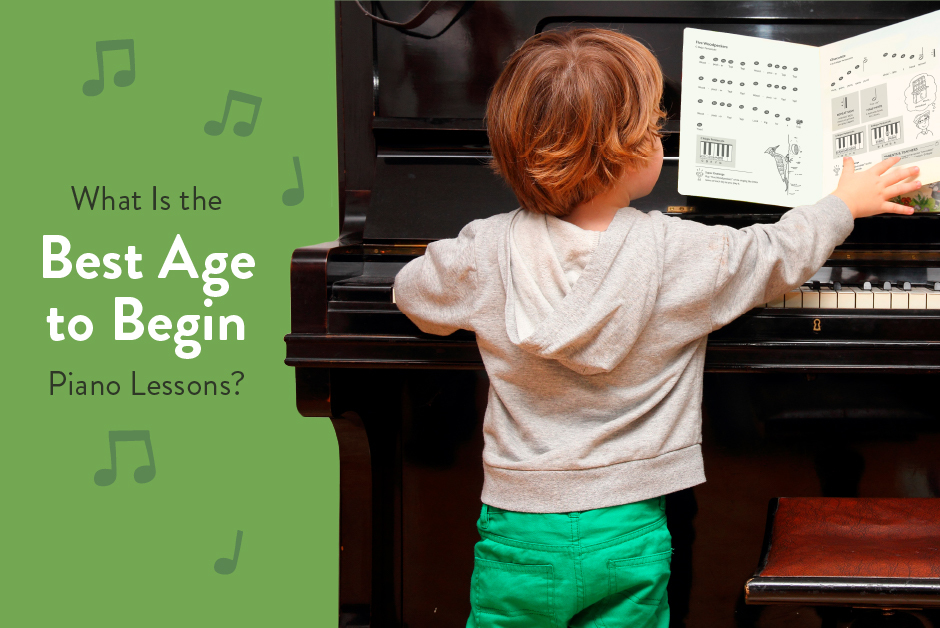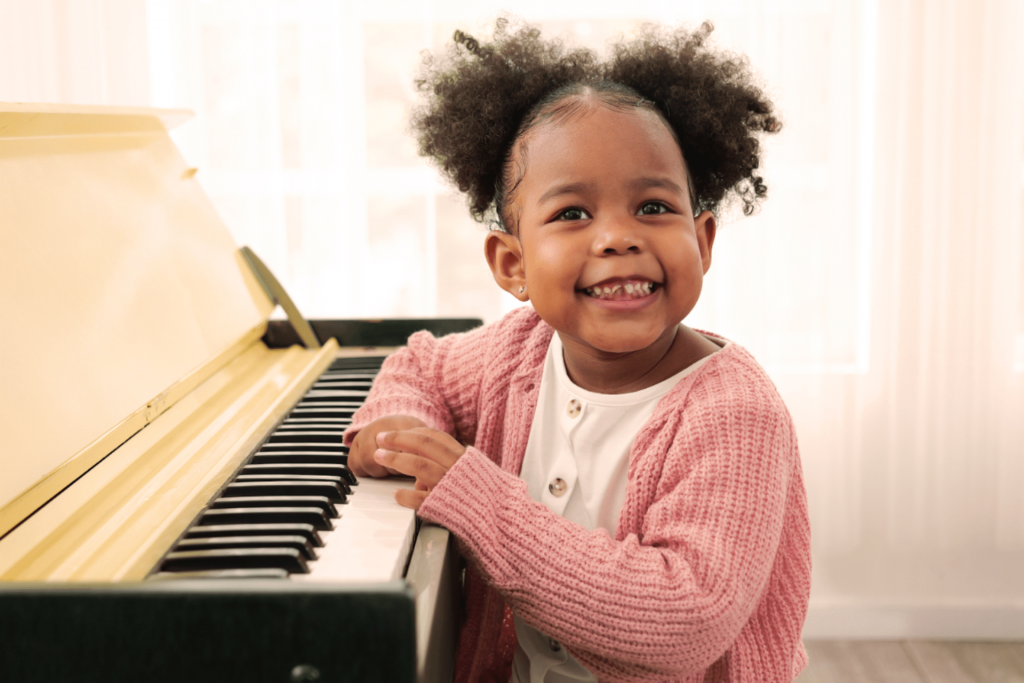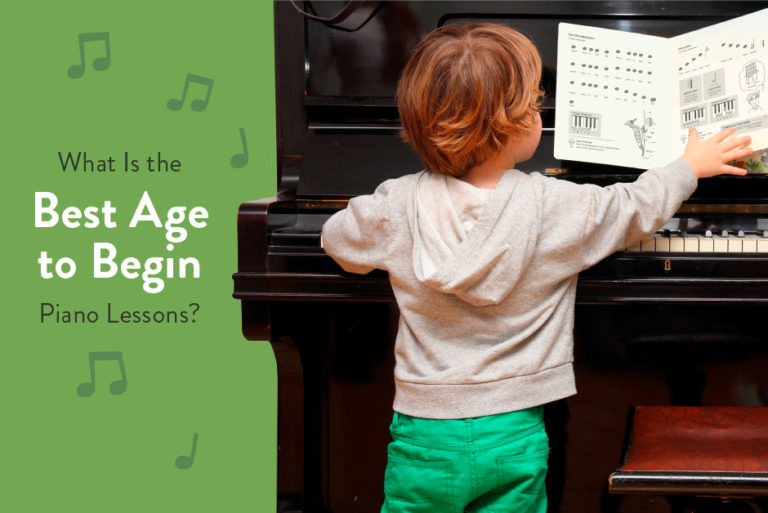Learning to play the piano is a rewarding journey. It nurtures creativity and builds discipline.
Many parents wonder about the best age to start piano lessons for their children. Is there a perfect age to begin? This question interests both beginners and experienced musicians alike. Starting at the right age can enhance learning and enjoyment.
Some believe starting young is crucial, while others see value in beginning later. Each age has unique benefits and challenges. Understanding these can help you decide the best time for lessons. In this blog, we will explore different ages and their advantages. Discover when your child might be ready to embrace the beautiful world of piano music. Let’s dive into the possibilities and make an informed choice together.

Credit: www.hoffmanacademy.com
Introduction To Piano Lessons
Starting piano lessons at a young age can be beneficial. Kids as young as five show great adaptability. It’s a fun and engaging way to nurture musical skills early on.
Learning to play the piano can be a rewarding journey for both children and adults. Whether you’re five or fifty, the piano offers a unique way to express yourself and develop a lifelong skill. But when is the best time to start piano lessons? This question often arises among parents eager to introduce their children to music. Let’s explore how early interest, benefits, and timing play a role in this decision.
Early Interest In Music
Children often show an early interest in music. You might notice them tapping to a beat or singing along with songs. This natural inclination can be a great indicator that they’re ready to explore piano lessons. Encouraging this interest can lead to a passion for music. Try playing different genres to see what they enjoy. If they light up when hearing a particular melody, it might be time to consider lessons. Starting early can also be beneficial for cognitive development. Young brains are like sponges, ready to absorb new skills. If your child shows curiosity, you might wonder how lessons could enhance their growth.
Benefits Of Learning Piano
Learning the piano offers numerous benefits beyond just playing music. It can improve hand-eye coordination and strengthen memory. These skills are valuable in everyday life and can aid in academic success. Piano lessons also teach discipline and patience. Regular practice helps build a routine, which can instill a sense of responsibility. This discipline often translates into other areas, like schoolwork and hobbies. Engaging with music can boost emotional well-being too. Playing the piano provides a creative outlet and can be a stress reliever. Have you ever noticed how music can change your mood? Imagine creating those moods through your own playing. Starting piano lessons at the right age can set the stage for a lifelong love of music. Whether your child is eager to start or you’re considering lessons for yourself, the benefits are clear and plentiful.
Ideal Starting Age
Choosing the right age for piano lessons can be crucial. It affects how well a child learns and enjoys music. Let’s explore the ideal starting age for piano lessons.
Preschool Years
Preschool years are a wonderful time to start piano lessons. Children are curious and eager to learn. Their brains are like sponges, absorbing new information quickly.
During this period, kids can develop a strong foundation in music. They learn basic concepts such as rhythm and melody. Simple songs and activities make learning fun.
Short, engaging lessons are ideal for preschoolers. Their attention span is limited, so keep sessions brief. Focus on playful activities to maintain their interest.
Early Childhood
Early childhood is another great time for piano lessons. At this age, children begin to understand instructions better. They can follow structured lessons and practice regularly.
Kids aged 5 to 7 can grasp musical concepts more deeply. They start learning to read music and play simple pieces. Their fingers become more agile, making it easier to play.
Lessons should be fun and interactive. Use games and songs to keep them motivated. Encourage regular practice to build discipline and skill.
Cognitive And Physical Development
Starting piano lessons at the right age can benefit a child’s growth. These lessons engage both cognitive and physical abilities. Such engagement supports better learning and coordination. Understanding when these abilities develop is key. This helps in choosing the best age to begin lessons.
Motor Skills
Motor skills are vital for playing the piano. Young children often develop fine motor skills rapidly. This includes finger strength and dexterity. Playing piano helps refine these skills further. It also supports hand-eye coordination. A child’s ability to manage tasks improves through practice.
Brain Development
Playing piano enhances brain development in children. It boosts memory and concentration. Music reading involves recognizing patterns. This strengthens problem-solving skills. It also fosters creativity and emotional expression. Engaging with music supports overall brain growth.

Credit: chambersmusicstudio.com
Emotional And Social Benefits
Starting piano lessons at a young age nurtures emotional growth and social skills. Kids learn patience, discipline, and teamwork. Playing music together builds confidence and friendships.
Starting piano lessons offers numerous emotional and social benefits, especially for young learners. Engaging with music at an early age can positively impact a child’s emotional well-being and social skills. These benefits extend beyond musical ability, enriching children’s lives in profound ways.
Confidence Building
Learning the piano helps build confidence. Mastering a piece, even a simple one, gives a sense of accomplishment. This boosts self-esteem, encouraging kids to tackle challenges in other areas of life. Consider the first recital experience. Performing in front of an audience can be daunting. Yet, successfully playing a song instills pride and confidence. You might wonder how this translates to other areas. When children feel good about their abilities, they approach new tasks with a positive mindset. This can lead to better performance in school and other extracurricular activities.
Social Interaction
Piano lessons often provide opportunities for social interaction. Group classes and recitals allow children to meet peers with similar interests. This fosters friendships and a sense of community. Engaging with others in a musical setting teaches valuable skills. Kids learn to listen, cooperate, and share ideas. These interactions are essential for developing strong social skills. Have you noticed how music can bring people together? Participating in duets or group performances encourages teamwork. It helps children understand the importance of collaboration and communication. Starting piano lessons can be a stepping stone to emotional and social growth. Have you considered how these benefits might impact your child’s future? Encouraging music education could be one of the most rewarding decisions you make for your child.
Challenges For Different Age Groups
Children often learn the piano quickly due to their adaptable minds. Teenagers may face peer pressure but benefit from strong learning capabilities. Adults can struggle with time management but bring dedication and focus to their lessons.
Embarking on the journey of learning piano can be both exciting and daunting. Different age groups face unique challenges that can influence their learning experiences. Whether you’re considering lessons for your child or yourself, understanding these challenges can help you make informed decisions.
Young Children
Young children are often full of energy and curiosity, making them eager learners. However, maintaining their focus can be a challenge. Their short attention spans may require creative teaching methods. Interactive games or colorful music sheets might help keep them engaged. Small hands can struggle with reaching keys, but flexibility in finger movements can be cultivated over time. Parents often find it rewarding to witness their child’s progress, but patience is crucial. Consider if your child shows interest and enjoyment in music before committing to lessons.
Teenagers And Adults
Teenagers often face a different set of challenges. Balancing schoolwork, social activities, and hobbies can be tough. Their busy schedules might lead to inconsistent practice sessions. Setting specific goals and creating a structured practice routine can be beneficial. Adults might face challenges like preconceived notions about learning music. There’s a common belief that learning a new skill is harder as you age. Yet, adults often bring determination and discipline to the table. They can leverage their life experiences to understand complex musical concepts. Ask yourself: What’s holding you back from starting lessons? With dedication, you might surprise yourself with how quickly you can learn. Embrace the challenges, and let them fuel your musical journey.
Choosing The Right Teacher
Finding the best teacher is essential for piano lessons. A great teacher makes learning enjoyable and effective. This section will help you choose the right teacher. Focus on their qualifications and teaching style.
Qualifications And Experience
Look for a teacher with proper qualifications. They should have formal music education or certification. Experience is equally important. A teacher with years of teaching experience understands students’ needs better. They know how to handle different learning styles. Check their background and past student success stories.
Teaching Style
Teaching style varies among teachers. Some teachers are strict and focus on technique. Others are relaxed and encourage creativity. Find a teacher whose style matches your child’s personality. An engaging teacher keeps lessons fun and interesting. They inspire students to practice and improve.
Observe a few lessons if possible. This helps you understand their approach. It also shows how they interact with students. Choose a teacher who balances discipline with encouragement.
Parental Involvement
Starting piano lessons at a young age can be very rewarding. Parental involvement plays a crucial role. It ensures that the child stays motivated and engaged. Parents can provide the necessary support and encouragement. They can also help establish a practice routine.
Support And Encouragement
Children thrive when they feel supported. Parents should show interest in their child’s progress. Attend their recitals and celebrate achievements. Simple praise can boost confidence. Encourage them to play even if they make mistakes.
Practice Routine
Consistency is key in learning piano. Help your child set a daily practice schedule. Make sure the practice time is free from distractions. Short and frequent sessions are more effective. Supervise practice to ensure proper technique.
Incorporate breaks to keep it fun. Practice should not feel like a chore. Encourage your child to play songs they enjoy. This makes practice more engaging and productive.

Credit: www.hoffmanacademy.com
Setting Goals And Expectations
Setting goals and expectations is vital for piano learners. It guides progress and maintains motivation. Understanding the best age to start piano lessons involves recognizing individual needs and capabilities. Goals help learners focus on improvement and celebrate achievements, regardless of age.
Short-term Goals
Short-term goals provide immediate focus and direction. Beginners might aim to learn basic notes within weeks. This goal builds confidence and encourages consistent practice. Setting a daily practice routine enhances skill development. Short-term milestones, like playing a simple song, boosts enthusiasm.
Long-term Vision
Long-term vision shapes the journey of piano learning. It involves thinking about future musical aspirations. Learners may dream of performing in front of family. This vision motivates continued practice and learning. Visualizing success inspires dedication and perseverance. Long-term goals can include mastering complex compositions. These objectives require patience and ongoing effort.
Frequently Asked Questions
Can My 4 Year Old Learn Piano?
Yes, a 4-year-old can learn piano. Many children start at this age. Early lessons enhance musical skills and cognitive development. Choose a patient teacher experienced with young kids. Keep practice sessions short and fun to maintain interest. Regular practice helps improve their skills gradually.
What Is The Best Age For Piano Lessons?
The best age for piano lessons is typically between 6 and 9 years old. Children can grasp basic concepts and develop skills.
Is 7 Too Late To Start Piano?
Starting piano at age 7 is not too late. Many children learn quickly and develop strong skills. Early lessons enhance cognitive abilities and musical creativity. Encourage regular practice to build a solid foundation. It’s a great age to explore music and enjoy learning the piano.
How Early Is Too Early To Play Piano?
Children can start playing piano as early as age 3. Early exposure helps develop musical skills and cognitive abilities.
Conclusion
Starting piano lessons at any age can be beneficial. Young children often learn quickly. They have flexible minds and fingers. Older beginners bring patience and focus. Each age has its own strengths. Choose the right time for you or your child.
Consider interest and commitment. Find a teacher who inspires. Enjoy the journey of music. It’s about learning and having fun. Piano playing offers lifelong joy. Whether young or old, the best age is now. Begin your musical adventure today.
